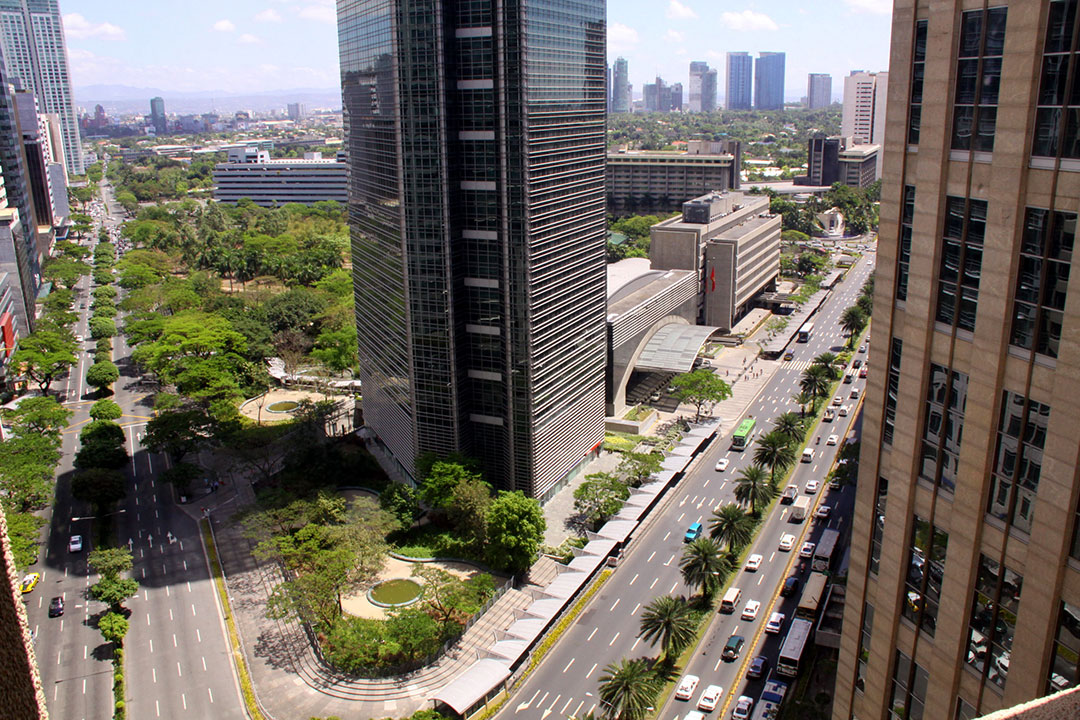
Upgrade to High-Speed Internet for only ₱1499/month!
Enjoy up to 100 Mbps fiber broadband, perfect for browsing, streaming, and gaming.
Visit Suniway.ph to learn
 BW FILE PHOTO
BW FILE PHOTOSenator Maria Lourdes “Nancy” Sombillo Binay Angeles assumes the mayoralty of Makati City by the end of June, succeeding her younger sister, Mar-len Abigail “Abby” Sombillo Binay-Campos, who held the position for nine years. If memory serves, Senator Nancy will become the first former senator, having served 12 years, to hold Makati’s mayoral office. Sister Abby served in Congress before becoming mayor.
Senator Nancy was elected mayor in May, a week before the Supreme Court lifted its temporary restraining order on the No Contact Apprehension Program (NCAP), a camera-based traffic enforcement initiative. I find this timing auspicious. Perhaps under Mayor Nancy, the NCAP will finally be implemented in Makati.
As a Makati resident, I remain supportive of Abby Binay. I believe she was a good mayor, leading the city better than most, particularly during the pandemic years. I also appreciated her continuation of the hospital project in the first district despite its controversial beginning.
However, in terms of traffic management, she could have done more. Perhaps she relied a little too much on the subway project. There is no doubt in my mind that a city mass transit system would significantly reduce congestion. Unfortunately, unforeseen circumstances have stalled that project indefinitely.
Incoming Mayor Nancy now has the opportunity to leave her mark. With the subway no longer a viable solution in the near term, she urgently needs to tackle the worsening traffic situation. Achieving this goal will require strong support from the National Government, the private sector, and the local community.
Given Makati’s considerable resources, it remains puzzling why the city has not yet adopted camera-based traffic enforcement, even just within the Central Business District (CBD). Perhaps with the mass transit system envisioned as the primary solution, other innovative traffic management strategies remained overlooked.
Now is an ideal time to clarify the relationship between City Hall, its Public Safety Department (PSD), the Makati Parking Authority (MAPA), and the Makati Commercial Estates Association (MACEA). These organizations should collaborate on a pilot NCAP project specifically for the CBD.
MAPA and MACEA (which are both private organizations), rather than City Hall, could lead this initiative, potentially bypassing bureaucratic hurdles that typically slow down City Hall-led projects. Traffic and parking management, as well as road improvements within the CBD, already fall under MAPA’s jurisdiction.
Utilizing camera-based technology in a connected system serves dual purposes: traffic enforcement and crime prevention. It acts as a deterrent against traffic violations and crimes such as theft and robbery, and provides valuable evidence for investigations.
Currently, Makati traffic is chaotic daily. Pre-pandemic, motorists were wary of entering Makati due to the strict enforcement of traffic regulations, particularly on Ayala Avenue and within the CBD. Traffic enforcers diligently issued citations, and Public Utility Vehicles strictly observed loading and unloading zones.
Post-pandemic, despite infrastructure improvements, traffic conditions have deteriorated. Red zones (no-parking and no-waiting areas) are regularly ignored, double parking has become commonplace, and numerous delivery riders, motorcycle taxis, and transport network vehicles obstruct traffic by parking curbside. Privileged drivers continue to stop and park wherever convenient.
Moreover, enforcement noticeably relaxes from 7 p.m. to 7 a.m. Motorists increasingly disregard traffic laws and regulations at night, knowing enforcers are off duty. Jupiter St., a designated no-parking and no U-turn zone, exemplifies this issue, with frequent violations occurring without consequence.
UV Express units entering the CBD frequently disregard traffic lights and signs from evening until early morning, risking the safety of other road users. Night-shift workers exacerbate congestion by double-parking, moving their vehicles only after their shifts conclude.
MAPA spends substantial funds annually on road maintenance, signage, and employing parking and traffic enforcers. However, these investments prove ineffective during the 12 nighttime hours when the CBD essentially becomes lawless. Cameras operating 24/7 can enforce regulations consistently, assisting even a minimal nighttime workforce.
Additionally, MAPA should deputize tow trucks for nighttime operations. There is ample opportunity for revenue from towing illegally parked vehicles. NCAP cameras would also enable the rapid deployment of night-shift traffic enforcers to problem areas or accident scenes.
In the CBD, unscrupulous motorists frequently violate traffic and parking regulations, while pedestrians jaywalk with impunity from 10 p.m. to 7 a.m. Pedestrians often prioritize convenience over personal safety, ignoring underpasses and pedestrian crossings.
Traffic laws apply continuously, not just during the daytime. Enforcement must be strict and consistent, regardless of the hour. Technology, rather than increased human resources, offers the most viable solution. Implementing NCAP in Makati is key.
I propose piloting NCAP within the CBD, focusing initially on Ayala Ave., Gil Puyat Ave., Paseo de Roxas, Dela Rosa, and within Salcedo and Legaspi Villages. From there, Makati can expand the program incrementally to J.P. Rizal, Kalayaan, Chino Roces, and surrounding residential-commercial areas such as Poblacion, San Antonio, and Guadalupe. A phased approach will allow calibration, public education, and continuous improvement.
A successful NCAP deployment in Makati requires a public-private partnership model. Barangays Bel-Air and San Lorenzo should serve as initial test areas, followed by Poblacion and other barangays. City Hall must actively support the initiative, with private-sector buy-in solicited and secured.
Given MAPA’s expertise in parking enforcement, it can effectively identify chronic obstruction zones caused by illegal parking and improper loading/unloading. Integrating NCAP with MAPA’s existing mandate will likely enhance curbside discipline and parking turnover.
MACEA, as the private-sector manager of the Makati CBD, plays a crucial role in urban planning, security, and mobility policy. It can facilitate public-private financing for camera procurement, promote data-sharing and enforcement coordination, and help design traffic rules that align with business needs, minimizing friction. City Hall, especially the Public Safety Department, should manage on-the-ground enforcement, violation disputes, and appeals processing.
Makati hosts thousands of businesses, government offices, banks, schools, shopping centers, and numerous diplomatic missions. Each weekday, the city accommodates over half a million transient workers and commuters. Manual traffic enforcement is unsustainable for this daily influx. Human enforcers suffer from fatigue, bias, and inconsistent implementation.
Diplomatic missions in Makati add complexity. Foreign diplomatic vehicles have immunities under the Vienna Convention, exempting them from penalties. Makati should proactively engage diplomatic missions, requesting voluntary compliance and adherence to local traffic norms, using diplomatic channels to uphold courtesy while reinforcing responsibility.
NCAP systems provide unbiased, round-the-clock monitoring of critical intersections and corridors. Cameras never tire, negotiate, or ignore infractions. Automated penalties for violations have been proven elsewhere to improve road discipline, reduce accidents, and enhance traffic flow.
Beyond easing congestion, NCAP promotes safety, encouraging adherence to speed limits, pedestrian crossings, and stoplights. A well-calibrated NCAP system will protect vulnerable road users, vital in a city with substantial foot traffic.
If Makati wishes to remain a business and urban leader, it must invest in modern, transparent, and fair traffic enforcement systems. The goal is not merely enforcement but creating a safer, efficient, future-ready transportation ecosystem. Implementing NCAP effectively in Makati can achieve exactly that.
Marvin Tort is a former managing editor of BusinessWorld, and a former chairman of the Philippine Press Council




